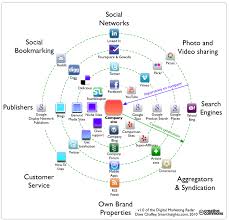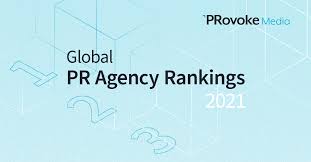Navigating the Digital Landscape: The Role of a Social Media and PR Agency
Social Media and PR Agency: Harnessing the Power of Digital Communication
In today’s fast-paced digital world, the role of social media in public relations (PR) has become more crucial than ever. Social media platforms have transformed the way businesses communicate with their audiences, making it essential for companies to have a strong online presence. This is where a Social Media and PR Agency plays a vital role in helping businesses navigate the complex landscape of digital communication.
At a Social Media and PR Agency, professionals work tirelessly to create engaging content, manage online communities, monitor brand reputation, and drive strategic campaigns across various social media channels. By leveraging the power of social media, these agencies can effectively amplify a company’s message and reach a wider audience.
One of the key advantages of partnering with a Social Media and PR Agency is their expertise in crafting compelling narratives that resonate with target audiences. Through strategic storytelling and content creation, these agencies can help businesses build brand awareness, establish thought leadership, and foster meaningful connections with customers.
Furthermore, social media platforms provide valuable data insights that allow Social Media and PR Agencies to track campaign performance, measure engagement metrics, and adapt strategies in real-time. This data-driven approach enables businesses to make informed decisions and optimise their digital communication efforts for maximum impact.
In addition to managing social media channels, a Social Media and PR Agency also plays a critical role in crisis communication. In times of adversity or negative publicity, these agencies can swiftly respond to issues, mitigate reputational damage, and protect brand integrity through strategic messaging and proactive engagement with stakeholders.
Overall, the partnership between businesses and Social Media and PR Agencies is essential for navigating the ever-changing landscape of digital communication. By harnessing the power of social media platforms and leveraging expert PR strategies, companies can enhance their online presence, engage with audiences effectively, and ultimately drive business growth in today’s competitive market.
Six Essential Tips for Social Media Success in PR Agencies
- Understand your target audience and tailor your social media content to appeal to them.
- Engage with your followers by responding to comments and messages in a timely manner.
- Collaborate with influencers or other brands to expand your reach and credibility.
- Monitor social media trends and adapt your strategy accordingly to stay relevant.
- Utilise analytics tools to track the performance of your social media campaigns and adjust as needed.
- Maintain a consistent brand voice across all social media platforms for better brand recognition.
Understand your target audience and tailor your social media content to appeal to them.
To maximise the effectiveness of your social media and PR agency partnership, it is crucial to have a deep understanding of your target audience and customise your social media content to resonate with them. By identifying the preferences, interests, and behaviours of your audience, you can create tailored content that speaks directly to their needs and desires. This personalised approach not only enhances engagement but also fosters stronger connections with your audience, ultimately driving brand loyalty and business growth.
Engage with your followers by responding to comments and messages in a timely manner.
Engaging with your followers by promptly responding to comments and messages is a fundamental aspect of effective social media management for a PR agency. By actively interacting with your audience, you not only demonstrate that you value their input and feedback but also foster a sense of community and connection. Timely responses show that you are attentive and responsive, building trust and credibility with your followers. This two-way communication not only strengthens relationships but also enhances brand loyalty and encourages further engagement on social media platforms.
Collaborate with influencers or other brands to expand your reach and credibility.
Collaborating with influencers or other brands is a powerful strategy for expanding reach and enhancing credibility in the realm of social media and public relations. By partnering with influential individuals or reputable brands, businesses can tap into existing audiences, leverage their authority, and gain access to new markets. These collaborations not only help increase visibility but also establish credibility through association, fostering trust and authenticity among followers. Such partnerships can drive engagement, broaden brand awareness, and ultimately contribute to the overall success of a company’s communication efforts in the digital landscape.
Monitor social media trends and adapt your strategy accordingly to stay relevant.
Monitoring social media trends and adapting your strategy accordingly is essential for staying relevant in today’s dynamic digital landscape. By keeping a close eye on emerging trends, engagement patterns, and audience preferences, a Social Media and PR Agency can proactively adjust their approach to ensure that clients’ messaging remains timely and resonates with their target audience. This proactive strategy not only helps businesses stay ahead of the curve but also allows them to capitalise on new opportunities and maintain a competitive edge in the ever-evolving world of social media and public relations.
Utilise analytics tools to track the performance of your social media campaigns and adjust as needed.
To maximise the effectiveness of your social media campaigns, it is essential to utilise analytics tools to monitor and evaluate their performance. By tracking key metrics such as engagement rates, reach, click-through rates, and conversions, you can gain valuable insights into what is working well and what areas may need improvement. Adjusting your strategies based on these analytics allows you to optimise your campaigns in real-time, ensuring that you are reaching your target audience effectively and achieving your communication goals.
Maintain a consistent brand voice across all social media platforms for better brand recognition.
Maintaining a consistent brand voice across all social media platforms is a fundamental tip for businesses working with Social Media and PR Agencies. By ensuring that the tone, messaging, and style remain cohesive across various channels, companies can enhance brand recognition and establish a strong and memorable identity in the minds of their audience. Consistency in brand voice not only fosters trust and credibility but also helps create a unified brand experience that resonates with customers, ultimately contributing to increased engagement and loyalty.










